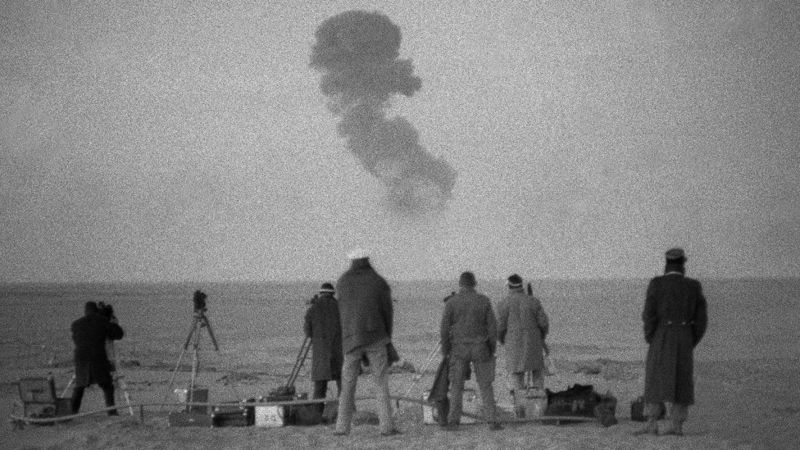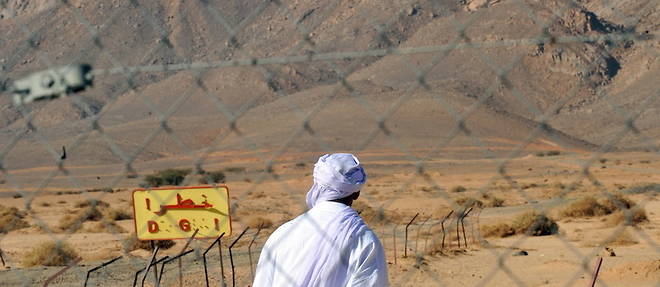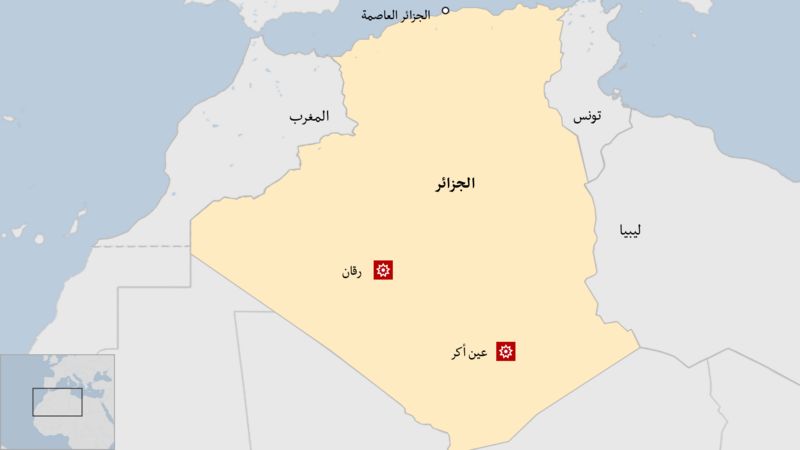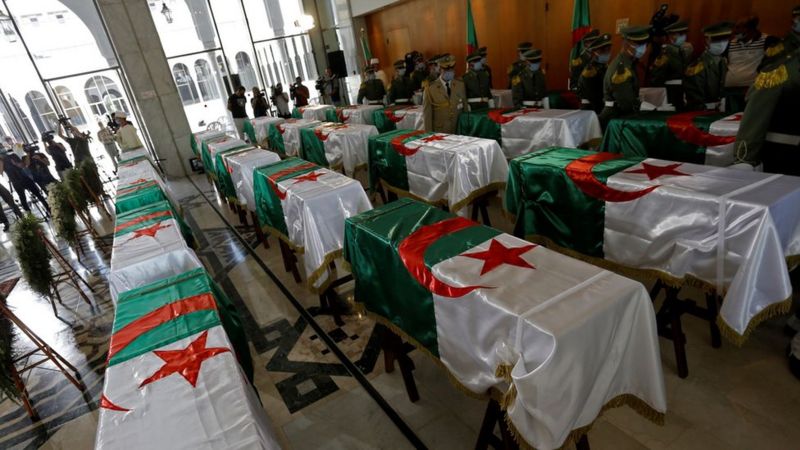Le Point: France Refuses to Cleanse Algeria of Nuclear Waste or Hand Over Its Maps

Despite the end of the French occupation of Algeria in 1962, the Arab country still suffers today from the colonial crimes of Paris, which "do not have a statute of limitations,” the most serious of which is the consequences of the French nuclear explosions in the Algerian desert.
Algeria called on France during the era of President Emmanuel Macron to cleanse its lands of this waste, but Paris did not technically present any initiative to cleanse the sites, nor did it take any humanitarian action to compensate the victims.
The French newspaper "Le Point" shed light on the signs of the new Algerian-French crisis, one of the consequences of the French occupation of Algeria, which lasted about 130 years (1830-1962).
The newspaper pointed out that the Algerian authorities blamed their French counterparts for preventing the Algerians from accessing the topographic maps of toxic waste resulting from the nuclear explosions carried out by France in the Algerian desert.
The Minister of Mujahideen in the Algerian Caretaker Government, Tayeb Zitouni, revealed to the "Algerian News Agency" (official), on the eve of the 59th anniversary of Algeria's independence on July 5, 2021, about the features of the crisis.
He said that Paris "refuses to hand over topographical maps that make it possible to locate polluting, radioactive or chemical landfills that have not yet been discovered."

The outgoing minister's speech, awaiting the formation of a new Algerian government, came in response to a question about President Abdelmadjid Tebboune's request from France to clean up the sites of nuclear explosions and treat the victims.
Tebboune, in an interview with Le Point, confirmed that he had asked France to "come and clean the nuclear test sites, a process that is in full swing, because to this day the effects of pollution remain," adding: "Let France take care of the victims of nuclear tests."
Crimes not Subjected to Obsolescence
The Minister of Mujahideen stated, "The French side has not technically taken any initiative to cleanse these sites, and France has not taken any humanitarian action to compensate the victims."
The scientist stated that the French nuclear tests, which amounted to 17 explosions between 1960 and 1966, are "conclusive evidence of the crimes committed, whose radiation still affects humans and the environment."
According to Tayeb Zitouni, they are "crimes that do not fall within the statute of Obsolescence" and mentions, in addition to nuclear tests, "the file of the missing, the scars of the Shali and Morris line, mines, and the victims of napalm."
Historian Benjamin Stora, in his report on the memory of the Algerian war presented on January 20, 2021, to Emmanuel Macron called for "continuing joint work at the nuclear test sites in Algeria, as well as the mines planted on the borders."

The Algerian minister considered, in June 2021, the creation of an "agency for the rehabilitation of former French nuclear test sites and nuclear explosions in southern Algeria."
Director of the Armament Observatory, Patrice Boufret, reported by the Algerian News Agency, that the establishment of this agency achieves "a political will not to leave the sites as they are."
He considered that the establishment of that agency "good news for the population living near the areas affected by 17 nuclear tests conducted by France between 1960 and 1966."
Algerian Army Demands
Regarding the file of compensation for the Algerian victims, the Minister of Mujahideen denounced the "obstructive" conditions of the "Moran Law,” issued on July 5, 2010, which "has not allowed the Algerians to benefit from any compensation so far."
Tayeb Zitouni, also revealed that the French side, "insists on dealing with the nuclear tests file with the utmost secrecy."
He continued, "Despite the numerous attempts by the judges and associations of victims of French nuclear tests in Algeria, who worked to open the archives of at least the two countries to determine the sites and areas of the tests."
In April 2021, the Chief of Staff of the Algerian Army, Said Chanegriha, asked his French counterpart, former General François Lecointre, for his support "for the final management of operations to rehabilitate the sites of Reggane and Aker."
The Algerian army also asked the French army, "topographic maps that allow the identification of landfill sites, not yet discovered, for polluting, radioactive or chemical waste."
A spokesman for the French Foreign Ministry said on May 25, 2021: that the 17th session of the Algerian-French joint group has already been held on May 19-20, 2021.
He mentioned the formation of the Algerian-French working group on nuclear tests in 2008 by the authorities of the two countries.
"The task of this group of experts is to jointly study the issue of rehabilitating the former nuclear test sites in the desert, with a primary concern for the protection of people and the environment," he added.

He explained that "the issue of French nuclear weapons tests in Algeria is a complex issue," saying: "Our two countries are working together to deal with it very seriously."
Martyr’s Remains
However, the Mujahideen Minister insisted that Algerian-French relations "recently witnessed remarkable progress in the field of monitoring memory files."
In this context, he says: "Let us remember the recent presentation of the results of the work of the Algerian-French scientific committee responsible for identifying the remains of Algerians in the National Museum of Natural History in Paris."
Part of the remains of the mujahideen of the Algerian resistance against French colonialism in the 19th century were returned to Algeria in July 2020.
However, other files remained pending, according to Tayeb Zitouni, who raises the thorny question of the "archive of the disappeared" during the Algerian war of independence from France.

These are files that "did not know any development, which requires the French party to engage and respond to Algeria's request, and allow this, to restore its national archive and provide sufficient information regarding the missing Algerians and the places where they are."
According to Tayeb Zitouni, "Algeria was able to identify 2,000 missing Algerians, and their burial places are unknown so far."
The memorial files remain, according to Zitouni, "in the midst of talks between Algeria and France within the framework of the Algerian-French high-level governmental committee, special committees and joint groups that include several ministerial sectors."
The last high-level French-Algerian intergovernmental commission, which was scheduled to convene in April 2021, has been postponed.
In his meeting with the French "Le Point,” the Algerian president stated that "the ball is in the court of the French government to organize another meeting."








